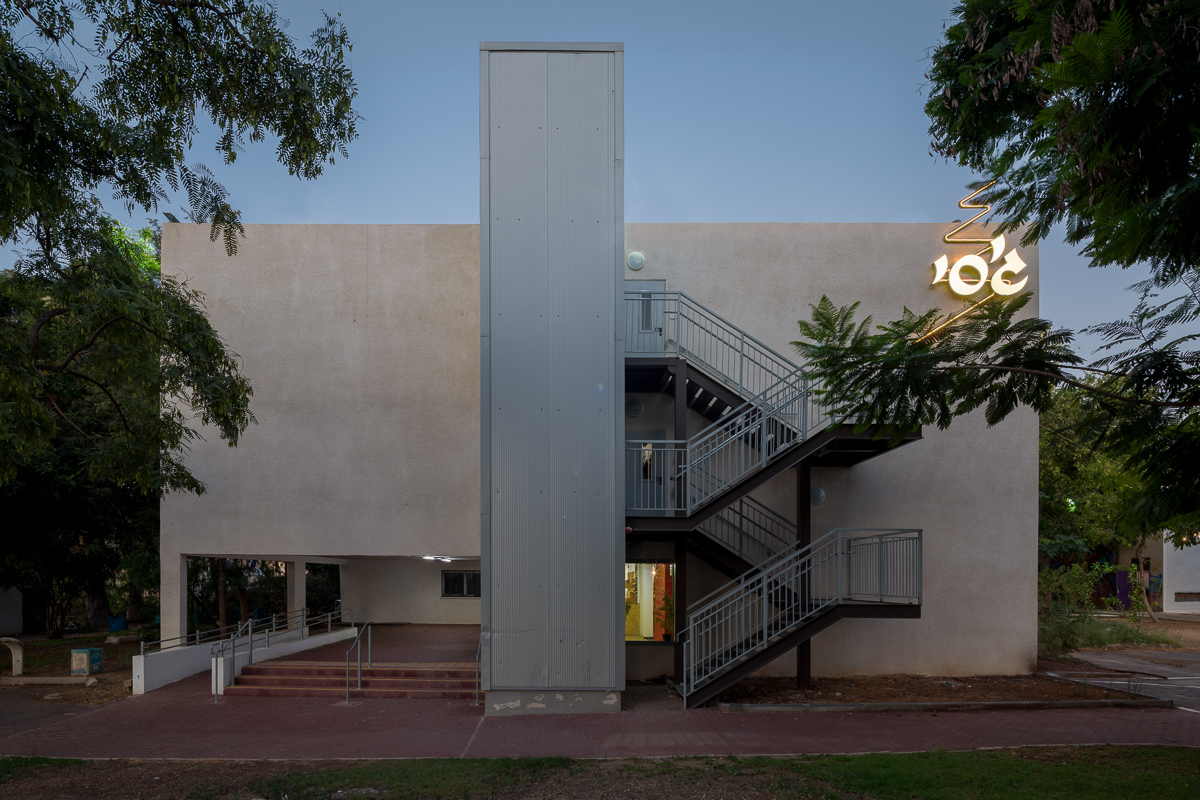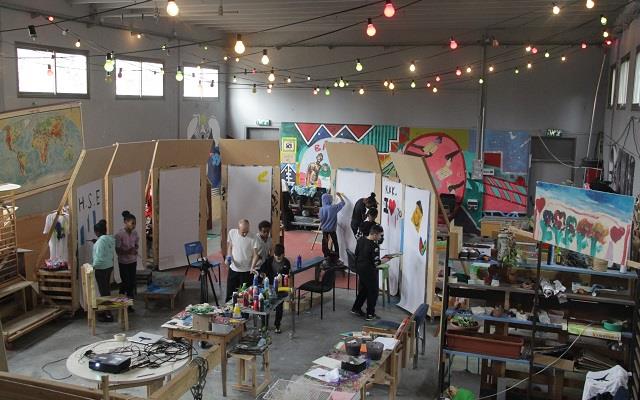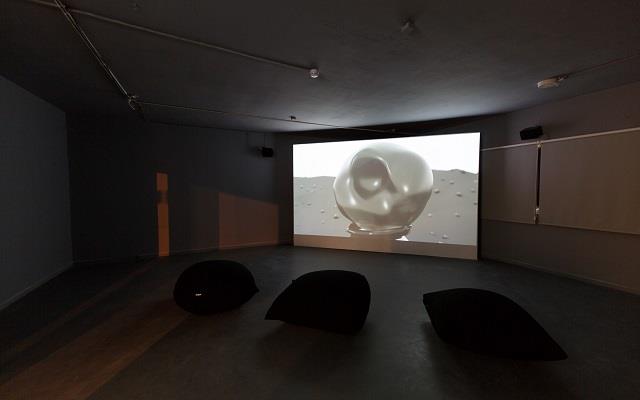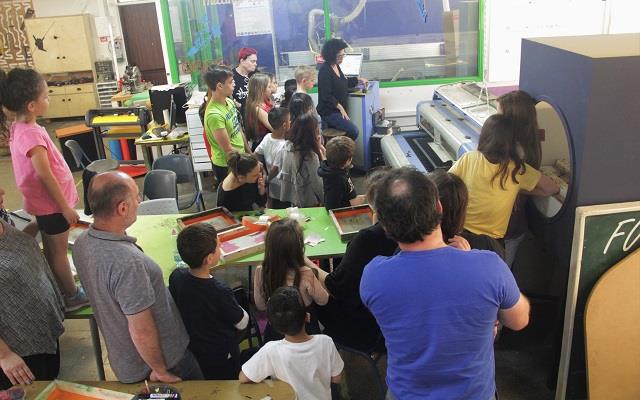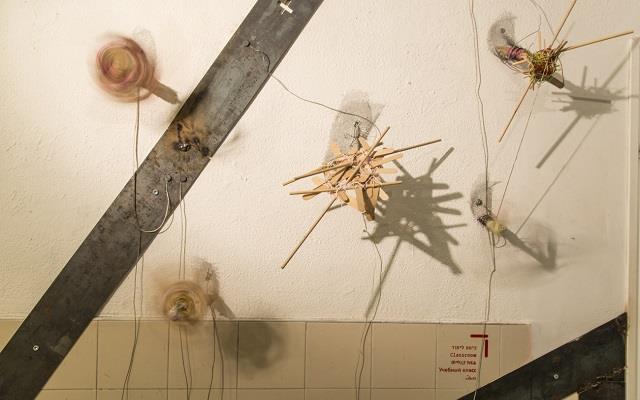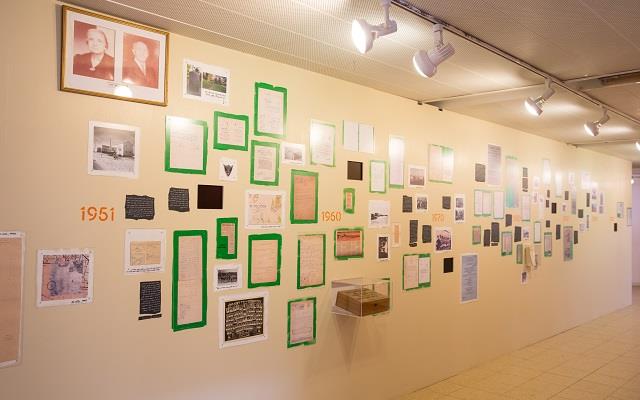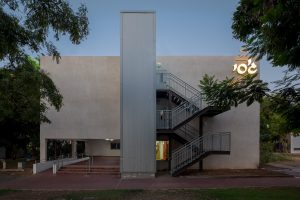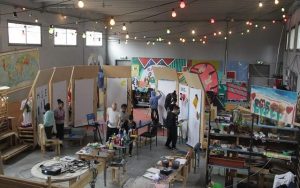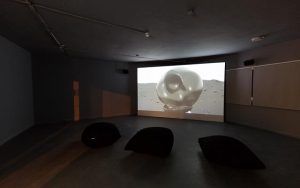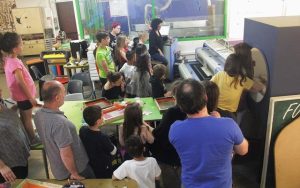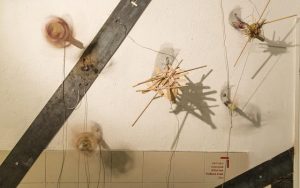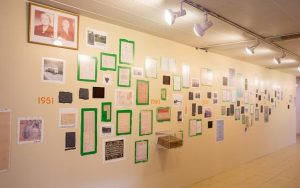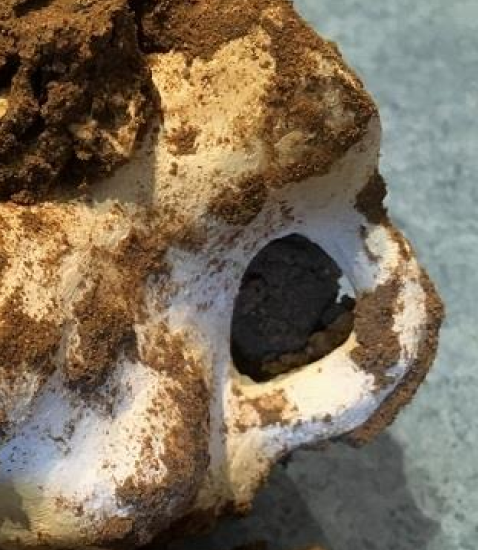About Us
The Center for Digital Art was founded by Galit Eilat in 2001 in Holon, and currently operates in the Jessy Cohen neighborhood.
It is a non-profit organization and is supported by the Municipality of Holon. As a space for public art, it constantly questions the place of art institutions in the society in which they act, and tirelessly examines the linkage between art and society, and the political and social issues emerging from the encounter between them.
The Center was founded in 2001 in the Neve Arazim neighborhood in Holon, and currently operates in the Jessy Cohen neighborhood in the city.
In recent years the Center has been undergoing a process of change and in-depth self-examination of virtually every aspect of its operation. A new work program was formulated for it by the staff, central to which is an attempt to redefine its roles and spheres of responsibility as a public art center. This process began concurrently with the commencement of work in the Jessy Cohen neighborhood, and continued more intensively in 2012 after the Center relocated.
The Jessy Cohen neighborhood, which was built in the early 1950s with funds donated by American-Jewish philanthropists Max and Jessica Cohen in order to provide public housing solutions for new immigrants who came to Israel in its early years from Eastern Europe and the Arab states, is situated on the southwest boundary of Holon, which is itself located to the south of Tel Aviv.
We at the Center believe that the roots of artistic freedom are embedded in the ability of art to be detached from utilitarian commercial and economic considerations, as well as in its ability to propose unplanned and uncontrolled space and time. That, in our view, is the public and political importance of art: it is a force with a potential for resisting market logic, and to create communities and new human, social, and community connections which act counter to this logic.
When we relocated to the Jessy Cohen neighborhood we sought to examine whether the practices and work methods we had assimilated, the methods we had become accustomed to, and even the Center’s artistic program, indeed serve this worldview. This process of self-examination led us to reformulate the Center’s objectives. We sought to establish a new center that would breach the conventions and boundaries in the field, and thus ensure that it remains both effective and essential in the community in which it is situated. We sought to establish an art center that liberates culture and language from the economic logic that has taken them over, and achieves this by forging genuine alliances with individuals and institutions – not necessarily from the world of art.
The Center’s new work program was formulated in accordance with these principles and aspirations, and from the perception that an art center is the contemporary community space due to its flexible and open structure that enables trial and error, and because it is a unique public place that places resources of time and space at the disposal of all.
We wanted to establish an art center in which visitors are not only viewers, but also household members.
An art center that is sufficiently flexible to change its designation from time to time.
An art center that can function as a school, a community center, a laboratory, a restaurant, and an exhibition space – all according to need.
And more than anything else, a center that always remains faithful to the basic principles of equal access for all, freedom of thought and opinion, and as far as possible, genuine equal partnership.
The Center’s activities focus on infrastructures and long-term projects in whose framework and through which activities, workshops, exhibitions, conferences, events are held, and publications are printed:
Gym Project – an ongoing project in a building that in the past served as the Weizmann School’s sports hall and now serves as a place to meet, create, and learn, which was designed and built collaboratively.
Institute for Public Presence – whose purpose is to investigate art in the public domain, and serves as a platform for research, exhibition, and developing new projects in public spaces.
The Complete Jessy Cohen Museum – an ongoing project founded by artists Effi & Amir and a group of neighborhood residents that endeavors to tell the story of the Jessy Cohen neighborhood in collaboration with its residents. The project includes a permanent exhibition, temporary exhibitions, and more.
Max-Machines & Crafts – a laboratory that is open to various audiences and communities, and combines craft, mechanical motion mechanisms, and digital manufacturing equipment. In the laboratory participants can realize their creations in material, manufacture virtually anything, and freely enjoy the advantages of advanced technological manufacturing.
Music Room – serves as a rehearsal room and recording studio for amateur and professional musicians from the local community and the general public.
Video Archive – houses some 5000 video works, documentary films, and documentation of the Center’s activities over the years of its operation. For the past few years, a digitization process is being made in order to make it accessible online.
Printing Press – established in conjunction with Dfus Golem, where relief printing workshops are held and the Center’s publications are printed.
Kitchen – serves the people at the Center for cooking, eating, and gathering, as well as for various workshops and projects.
Artist-in-Residence Program – provides artists, curators, and art critics from Israel and abroad with an opportunity to live and create in Holon for a predefined period of time in order to develop their artistic or theoretic work in light of our local context.
The Center’s Publications include Maarav (online magazine for media, art, and culture), online radio station Halas, and annual editions of catalogues, books, and anthologies. Maarav brings its readers contemporary Israeli art and culture, debates and controversies that touch on Israel and the world in general, as well as information on artists, exhibitions, events, technology, and theory. Halas (Holon Art Lab Audio Service) serves as a platform for experimental sound and enables listening live to discussions in conferences held at the Center.
The Israeli Center for Digital Art are:
Udi Edelman, Director and Chief Curator
Avital Barak, Associate Curator
Nir Sagiv, Administrative Director
Hadas Gur Arie, Production
Meir Tati, Education & Community Director
Eili Levy, Director of Max Machines & Crafts
Yonatan Geron, Technical Manager
Leila Rose Bari, Event producer
Daniel Meir, Director of HALAS Audio
Noa Gross, Exhibition Guide
Kesem Bibi, Exhibition guard
Galit Eilat, Founding Director (2001-2010)
Eyal Danon, Former Director (2010-2019)
